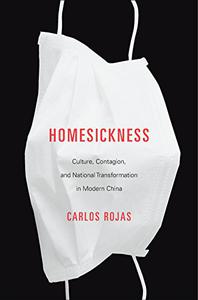Homesickness Culture, Contagion, and National Transformation in Modern China
- Книги
- 25-01-2023, 23:14
- 172
- 0
- voska89

Carlos Rojas, "Homesickness: Culture, Contagion, and National Transformation in Modern China"
English | 2015 | pages: 346 | ISBN: 0674743946 | PDF | 1,8 mb
The collapse of China's Qing dynasty coincided roughly with discoveries that helped revolutionize views of infectious disease. Together, these parallel developments generated a set of paradigm shifts in the understanding of society, the individual, as well as the cultural matrix that mediates between them. In Homesickness, Carlos Rojas examines an array of Chinese literary and cinematic tropes of illness, arguing that these works approach sickness not solely as a symptom of dysfunction but more importantly as a key to its potential solution.
Rojas focuses on a condition he calls "homesickness"―referring to a discomfort caused not by a longing for home but by an excessive proximity to it. The product of a dialectics of internal alienation and self-differentiation, this inverse homesickness marks a movement away from the "home," conceived as spaces associated with the nation, the family, and the individual body. The result is a productive dynamism that gives rise to the possibility of long-term health. Without sickness, in other words, there could be no health.
Through a set of detailed analyses of works from China, Greater China, and the global Chinese diaspora―ranging from late-imperial figures such as Liu E and Zeng Pu to contemporary figures such as Yan Lianke and Tsai Ming-liang―Rojas asserts that the very possibility of health is predicated on this condition of homesickness.
Links are Interchangeable - No Password - Single Extraction



